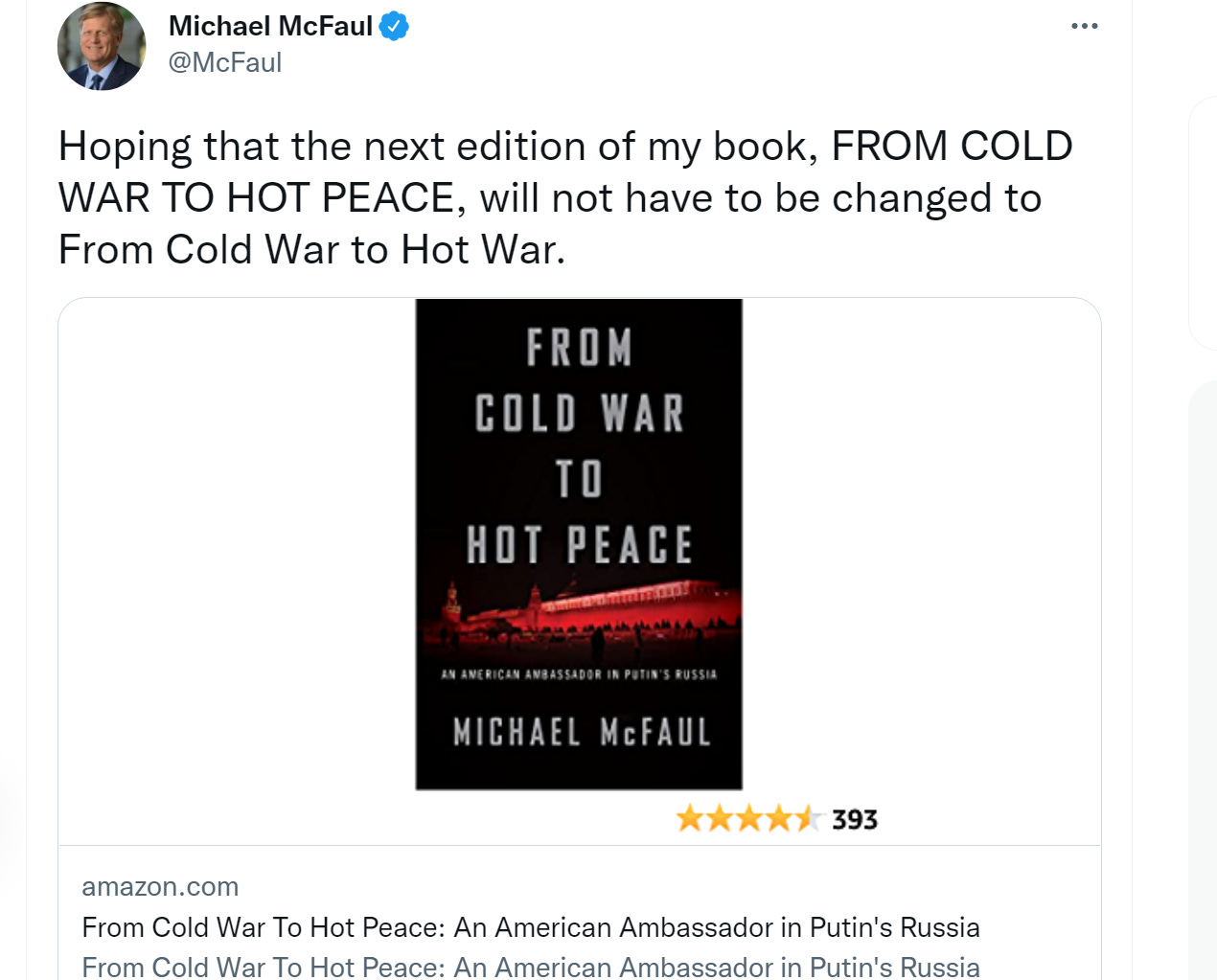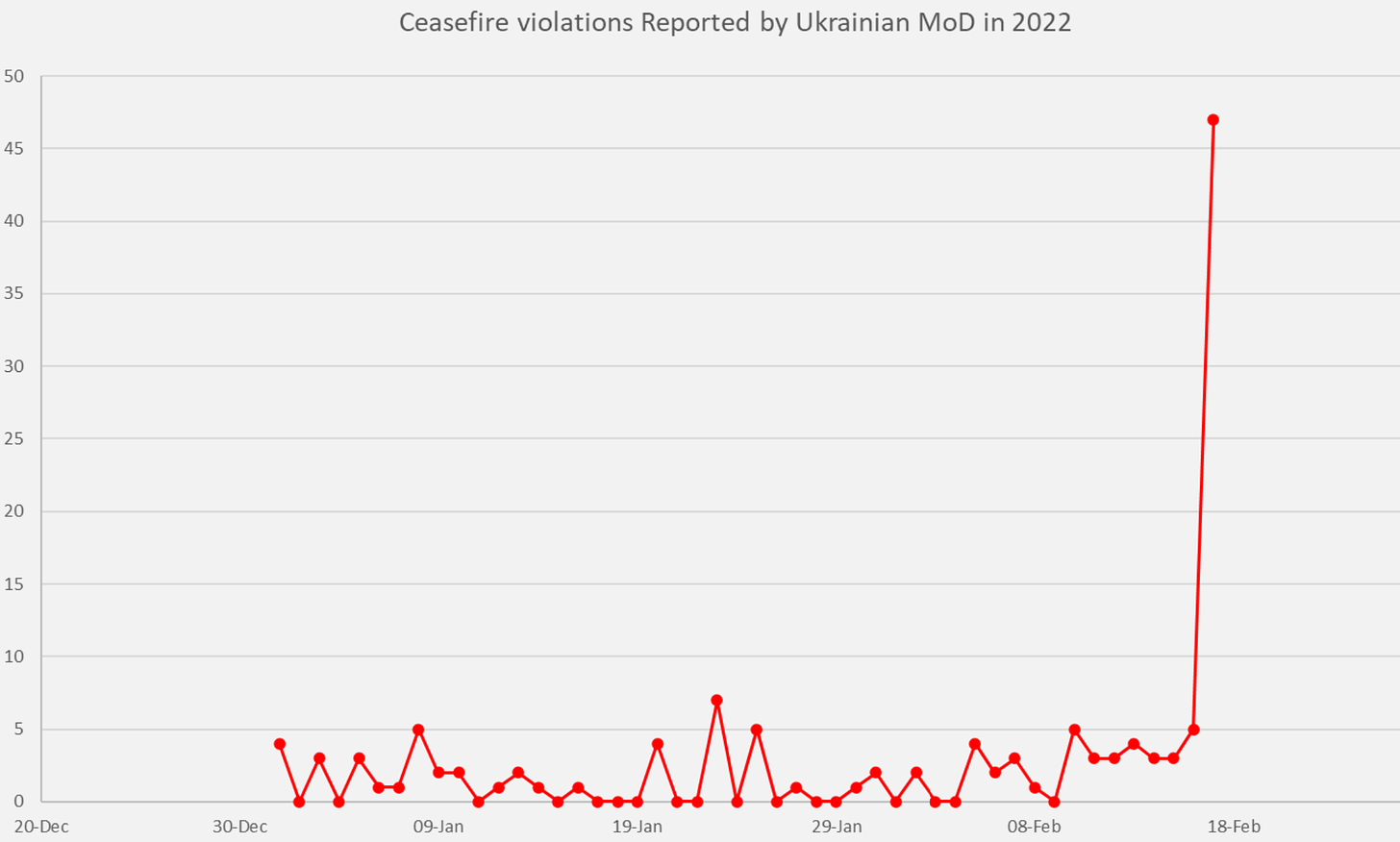Earthling: Ukraine crisis culprit of the week
Plus: Martian anniversary; DC revolving door imperils Afghans; Gen Z may save world, etc.
In Responsible Statecraft, Jack F. Matlock, the longtime diplomat who in 1997 warned that expanding NATO “may well go down in history as the most profound strategic blunder made since the end of the Cold War,” recounts the US mistakes that paved the way for the Ukraine crisis. And, though NATO expansion is not surprisingly on his list, Matlock usefully reminds us how many other items belong there: over the past quarter century, every American president has made consequential missteps. After Clinton launched NATO expansion, and Bush compounded the mistake by getting NATO to pledge future membership to Ukraine, Obama took over. Matlock (who was ambassador to the Soviet Union from 1987 to 1991), writes:
Although President Obama initially promised improved relations through his “reset” policy, the reality was that his government continued to ignore the most serious Russian concerns and redoubled earlier American efforts to detach former Soviet republics from Russian influence and, indeed, to encourage “regime change” in Russia itself. American actions in Syria and Ukraine were seen by the Russian president, and most Russians, as indirect attacks on them. And so far as Ukraine is concerned, U.S. intrusion into its domestic politics was deep, actively supporting the 2014 revolution and overthrow of the elected Ukrainian government in 2014.
But look at the bright side: Michael McFaul, the Russia hawk who during his five years in the Obama administration (including two as ambassador to Russia) helped shape many of those unfortunate policies, has found the Ukraine crisis to be a good book promotion opportunity. On Thursday, as the Ukrainian Ministry of Defense reported a big jump in ceasefire violations in the Donbass region, McFaul tweeted:
Note: The Responsible Statecraft piece was adapted from a longer piece by Matlock posted at ACURA, the American Committee for US-Russia Accord.
On the campaign trail, Biden promised to promote nuclear arms control and reduce the role of nuclear weapons in America’s national security strategy. But recent reports about the administration’s upcoming Nuclear Posture Review suggest Biden is poised to break those promises, writes Joseph Cirincione in The Washington Post. While Biden is expected to roll back some of Trump’s unsettling innovations—such as the doctrine that the US might respond to a cyberattack with nukes—the review will likely green light nuclear weapons programs costing hundreds of billions of dollars. And the review is unlikely to include something Biden sensibly championed as vice president: a declaration that the US will never be the first to use nuclear weapons in a conflict. According to Cirincione, resistance to meaningful nuclear reform is driven largely by the weapons industry.
On Feb 18, 2021, the one-armed, six-wheeled NASA robot known as Perseverance descended to the surface of Mars. And now, exactly one year later, Perseverance has persevered and continues to explore new terrain. Soil samples have revealed no signs of microbial life—but, according to NPR, we won’t be able to definitively settle the life-on-Mars question unless a subsequent mission can return the samples to Planet Earth for subtler analysis. (Now they tell us!) Here’s a Perseverance selfie:
The world’s rivers are teeming with fish, otters, turtles, and… carbamazepine. And that last one could be bad news for the fish, otters, and turtles. A study in the Proceedings of the National Academy of Sciences found that one fourth of the 258 rivers sampled around the world contained at least one pharmaceutical compound in amounts that are dangerous to aquatic life.
Writing in Responsible Statecraft, Kat DesCamp-Renner of the Friends Committee on National Legislation brings good news about the future: Generation Z—comprising people born between the late 1990s and early 2010s—is the most anti-war and pro-diplomacy generation in the American electorate. Gen Zers are politically active, and polls show they care about international affairs, writes DesCamp-Renner—so politicians in Washington should take note. They can start, she suggests, by taking the diplomatic steps needed to revive the Iran nuclear deal. A Zoomer herself, DesCamp-Renner observes that her generation supports the Iran nuclear deal by a whopping 40-point margin and—like the public at large—favors diplomatic steps such as sanction relief over military intervention. “Policymakers ought to worry less about the political cost of concessions that may be necessary to reach an agreement with Iran,” she concludes, “and more about the political costs, particularly with young voters, of the alternative.”







